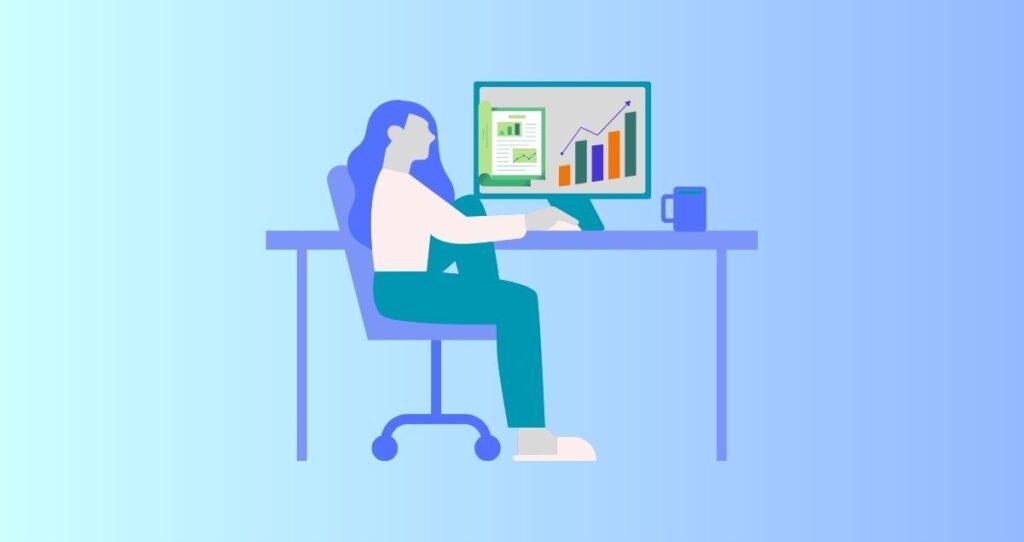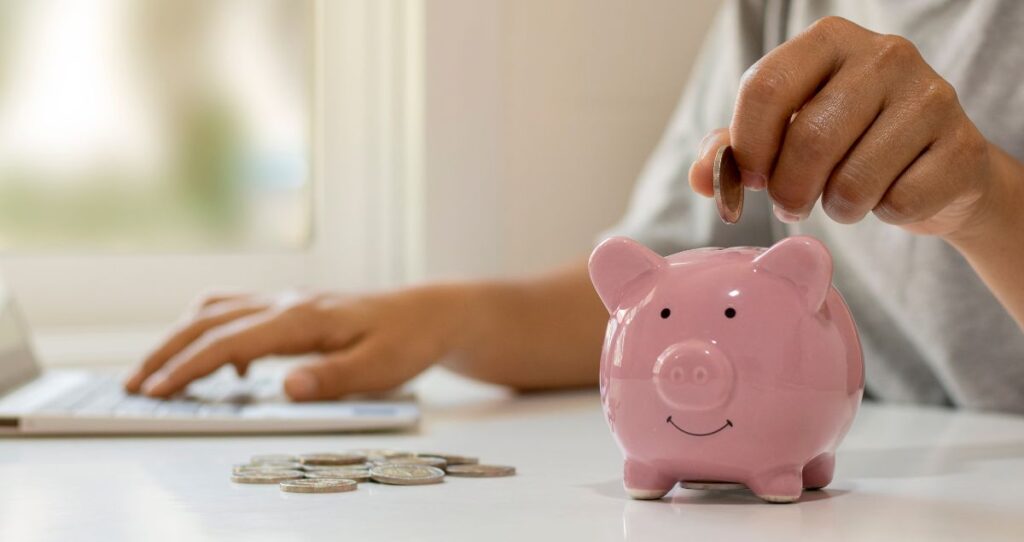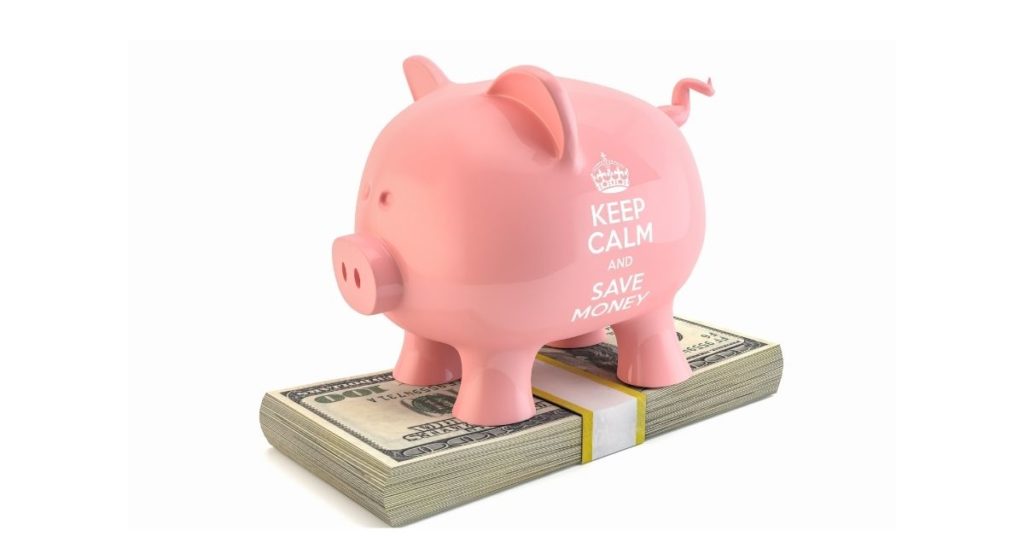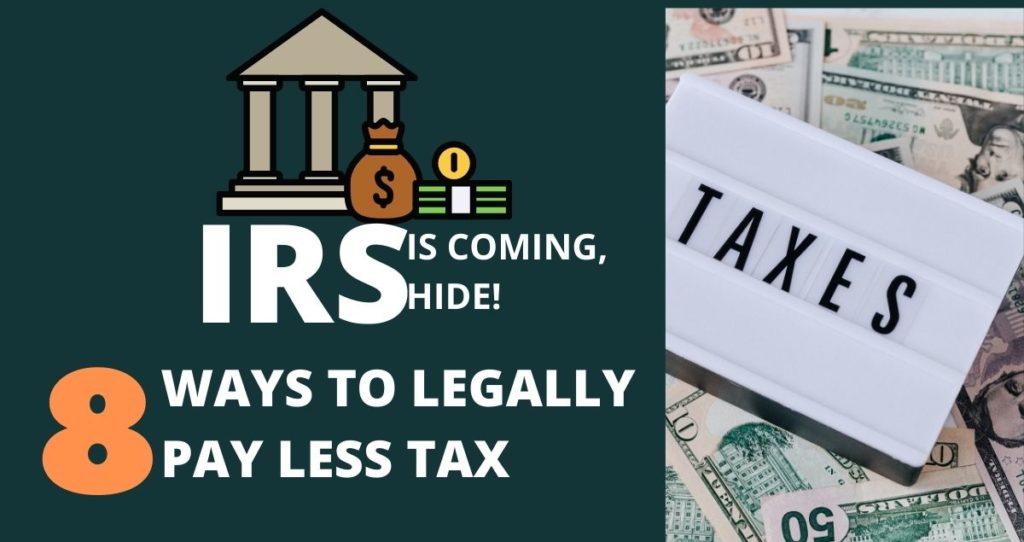When I was younger, my mother used to tell me that it was extremely important to not spend all the money I made. She wanted me to save money somewhere so that it could be used later for school notebooks, pencils, fees, clothes, etc. She was not educated but she understood the importance of saving money for future financial goals. After growing up, I realized that there were a number of money accounts I should have to help me manage my money and save for important goals.
Just like my mother taught me, I needed to allocate my income into different money accounts designed for a specific purpose. I learned that if I put all my money in a checking account that is designed for spending, I will end up spending all of my money. For this reason, I needed another account to hold the money I did not want to spend. That is how I ended up opening a savings account.
Then, I learned that keeping my money in a savings account will not protect my money entirely. I was earning around 0.05% APY which is normal for the banking industry. But the inflation was at 3.5%. Even if I was not spending my money directly, inflation was chewing on it.
Important money accounts everyone should have
My money was not safe even if it was in a savings account where I was not touching it. That is why I kept asking myself this question: Are there any money accounts I can have that:
- Prevent me from spending all my money,
- Protect my money,
- Come with high returns,
- Reduce my taxes, and
- Help me build wealth?
The answer to these questions was astonishing. Yes, there are money accounts you can open that help you manage your money like a pro. These accounts will help you become the master of your money and achieve financial independence faster than you anticipated.
Financial freedom starts with understanding how much you make and how you allocate that money in different money accounts designed for a single purpose: Financial stability or building wealth.
Some of the accounts you are going to learn here will help you minimize your taxable income, while others will simply earn you money or protect you and your loved ones.
I put this list of 7 important money accounts everyone should have with you in my mind. These accounts helped me turn my life around and I hope they will do the same for you.
Without further ado, the following are the top 7 money accounts everyone should have.
1. A checking account
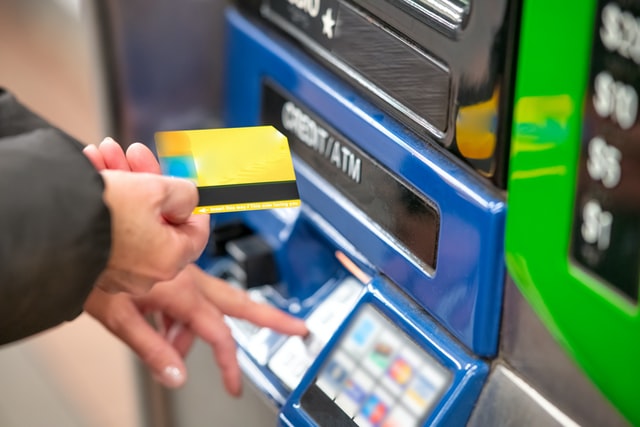
A checking account is an account you open with your bank or credit union. This account is designed for spending purposes, and by default, the account does not earn you interest.
A checking account will allow you to deposit money directly into the account. There are many ways you can deposit money into your checking account and they are listed below.
- Cash deposit at ATM: Traditional banks allow their customers to deposit cash into their checking accounts at the ATM using their debit cards.
- Check deposit at ATM or scan it: Same as cash, you can deposit a check into your checking account at an ATM. Most banks especially large ones have an option where you can deposit a check into your account using your phone. With this method, you will need to use the bank’s app and scan both sides of the check. After submitting them, a portion of the amount will be approved and the remaining will take a few days to appear in your bank account.
- Transfer: You can transfer money from your checking account to another bank or someone else bank account. The reverse is also true.
- Direct deposit from your job: Most employers offer options to directly deposit your check into your checking account or savings account.
Why do you need a checking account?
When it comes to spending and money management, things can get heated up. Many people spend more money than they make simply because they don’t have control of their finances.
One great way to be on top of your finances is to spend the money you can afford. That is spending what you have designed to be spent without penalty or fees. Since checking accounts are designed for spending, the account can help you spend exactly what you want to spend.
Simply, put the money you budgeted for spending into your checking account and spend it as you planned. If there is no money in the account, you will need to wait for the next month. You can’t spend it if you don’t have it.
Note: Most banks have an overdraft fee. So, make sure that you have money in your checking account and do not spend more than you have in the account. This will help you avoid an overdraft fee.
How to pick the best checking account?
Although all banks and credit unions offer check account options, the terms and conditions, and fees associated with these accounts differ from one bank to another.
When choosing the best checking account, look for the one with flexible terms. Use the following tips to help you pick the best checking account.
- Pick an account with a minimal deposit
- Do not open a checking account with a bank that has a monthly fee: You are not earning anything on the account. So, you should not pay a fee to keep money in the account.
- Avoid accounts with high fees (overdraft fee, low account value fee, maintenance fees, etc)
2. A savings account
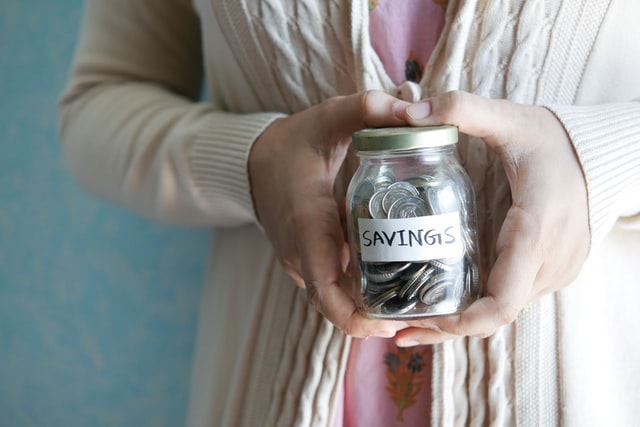
A savings account is an account you open with a bank or a credit union. Unlike checking accounts, a savings account earns you interest on the money you have in the account.
Although the interest you earn on the account is small, this account is still better than a checking account where you earn nothing. A savings account is great when it comes to short-term and long-term savings.
Why do you need a savings account?
Many people never open savings accounts. They think that it is hard to keep up with restrictions and monthly contributions. The truth is that you can automate the money into the account and never have to hustle again. The benefits you will get from a savings account will outweigh anything you will get from a checking account.
The following are some of the benefits of savings accounts.
- The account allows you to save for long-term or short-term goals
- Your money is insured for up to $250,000 when you open an account with FDIC insured institution
- You will earn interest on your balance
Keep in mind that a savings account will come with restrictions such as:
- A limited number of transactions you can make in the account (at most six withdrawals per month)
- Monthly contributions (many banks require it)
- Fees, etc.
How much can you make with a savings account?
Traditional savings accounts do not earn a high interest unless you open an account with High-Yield Savings accounts or have a certificate of deposit, etc. According to FDIC, the average return on savings accounts for account sizes under $100,000 is 0.06% APY. This return is extremely small compared to how much you can earn on other alternatives such as a 36 month CD where you can earn around 0.22% APY.
How to pick the best savings account?
The main benefit of savings accounts is to ensure the safety of your capital while earning you a small interest. In addition, the account will allow you to save money for futures financial goals.
For example, if you are planning to buy a house 4 years from now, it will be a good idea to open a savings account and put your money in the account. This is because the interest you earn will help you grow your account while keeping your money safe.
The best savings account is one that offers flexibility in conditions and terms of use. The same account should also have fewer fees and restrictions with reasonable returns. In addition, you should open a savings account with an institution insured by FDIC. The standard insurance amount is $250,000 per account and per depositor, in case your institution goes bankrupt, according to the Federal Deposit Insurance Corporation (FDIC). At least you won’t lose all your money.
Related: Difference between Checking and savings accounts
3. An emergency account
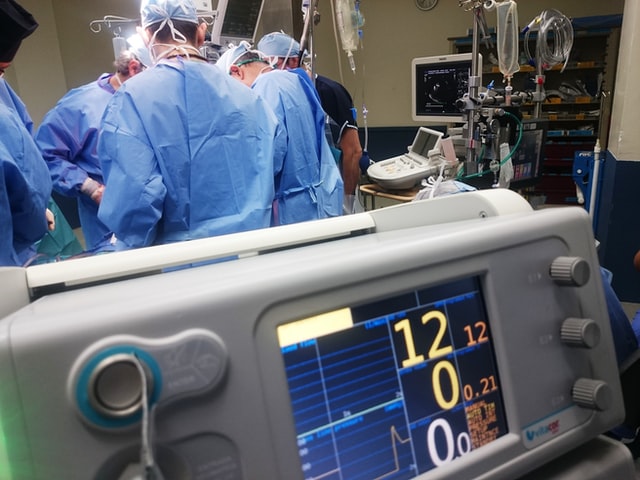
One of the most important money accounts everyone should have at all times is an emergency account. This account is so important that it will be the line between your financial success and financial struggles.
The emergency account is used to save money for emergencies. Life is like a rollercoaster and emergencies happen without notice. You will drive down the road, get in a car accident, and then the hospital says: You owe us $20,000 due in no time.
Unless you have saved enough money to cover these expenses or cover some of them, it will be difficult for you to move forward. Some people end up declaring bankruptcies which makes it difficult to finance their projects in the future. Lenders don’t like bankruptcies, foreclosures, collections, or anything related to these events.
To make sure that you are safe and prepared for emergencies, have an emergency account.
How much should you have in your emergency account?
Emergencies come in all types and sizes. For example, you can easily get laid off the next day without any backup plan. As a result, you could spend six months without landing another job.
The purpose of an emergency account is to cover your expenses for a given time when you are unable to work. In addition, the same account can help you when you have unexpected emergencies.
For this reason, you will save money in the emergency fund based on your monthly expenses. Most people prefer to save between 3 to 6 months’ worth of expenses. That is you will calculate your monthly expenses and save between 3 to 6 times that amount. If your monthly expenses are $4,000, you would save between $12,000 and $24,000. Having six months’ worth of expenses will put you in a much safer place.
Can you save too much in the emergency account?
There is no maximum amount you should have in your emergency account. However, keeping too much in the account will prevent you from putting your money to good use. For example, you could invest your extra money in a high-yield savings account and earn some interest. You could also put your money into other investments such as stocks, real estate, EFT, etc. This way, you will be putting your money to work instead of having it in an account where you earn pretty much nothing.
On the contrary, saving too little, might not be good enough to make a difference during emergencies.
The reason you need an emergency fund is not to cover all your emergencies. You can’t predict the financial cost of future events. You can also prepare. That is why you need to save a reasonable amount and figure out a way to cover the difference, should you have to pay more.
Related: 4 ways to save for emergency funds fast
4. A brokerage account
A brokerage account is an account offered by financial institutions known as brokers. This account holds investors’ money and assets and facilitates the transaction processes. For example, before you start investing in stocks, index funds, or buying other securities; you will need a brokerage account.
The process of opening a brokerage account is simple and straightforward. It takes a few days to open a brokerage account with most brokerage firms such as Fidelity Investments, Charles Schwab, Etrade, etc.
Once an account is open, you will need to link a bank account to your brokerage account. This allows you to fund your account and move money between your bank and your brokerage account. From there, you can start buying and selling financial securities.
In this era, you cannot build wealth and become financially independent without investing.
Investing is a true path to wealth and greatness. This is why a brokerage account is one of the most important money accounts everyone should have.
If you don’t have a brokerage account, consider opening one and learn the basics of investing. It is equally important to work with a financial advisor/investment advisor to help you navigate the complexity of investing. A financial advisor will help you pick the right investment that matches your financial goals and help you minimize risks.
At the end of the day, a brokerage account will not benefit you if you are not making good financial decisions with it.
Related: Brokerage Account Extended Definition
5. Money accounts you need: Retirement accounts

Even if you are working right now, a time will come when you will no longer afford to go to work. Your body will shut down and you will want to stay in bed all day.
You will not have the physical capacity to lift all those machines, patients, or operates your equipment. Your vision will fade away and your hearing capacity will plummet. Walking will be a difficult challenge and standing all day will become impossible. Your body will shut down slow by slow as you watch and there is nothing you can do to stop it. Your medical bills will go higher and you will depend on others to survive.
The bad news is that all your expenses will be there. Matter of fact, your expenses will go higher.
The question is: How are you going to afford all those expenses if you cannot work?
That is where your retirement accounts or retirement savings come in.
What is a retirement account?
A retirement account is a tax-advantaged account designed to help you save money and invest it for your retirement. These accounts can be provided by employers (401(K) or 403(b)) or opened by individuals (IRAs accounts).
Each retirement account comes with its own benefits and drawbacks. However, they are all designed to help you save money that will support you and your loved ones during your retirement when you can no longer afford to work.
The following is a brief description of widely used retirement accounts.
a) 401(k) and 403(b)
Your 401(k) and 403(b) are both money accounts sponsored by your employers designed for retirement. The only difference between these two money accounts is the type of employer you have.
A 401(k) is offered by private companies that aim for profits. The 403(k), on the other hand, is offered by non-profit organizations.
If you work for a company that offers one of these retirement accounts, sign up for it. There are many benefits that come with these accounts and the rewards are immense.
What are the benefits of a 401(k) and 403(b)?
Your employer-sponsored accounts come with a lot of benefits. The following are some of the reasons you should start contributing to your 401(k) or 403(b).
- Before-tax contribution: Your contribution to your 401K is taken off your paycheck before tax. This helps you reduce your taxable income and gives you a chance to grow your accounts and pay tax when you are taking the money out of your account (during your retirement)
- Employer contributions: Most employers contribute to your account either by a dollar amount or a matching. Matching means that your employer will match your contribution to a certain percentage. For example, if your employer matches your contribution by 50% and you contribute 10% of your paycheck, you will receive 5% from your company. For every 10% you contribute to the account, your employer will give you an extra 5%.
- Access to top-quality investments: The money you put into your retirement account can be invested in high returns investments. Inside your retirement account, there will be investment options you can select. These investments are carefully designed to maximize your returns while minimizing your risk.
What is the maximum contribution to your 401(k) Account?
Since your 401(k) account gives you tax advantages, there is a limit to how much you can contribute to the account. This limit is designed to make sure that you do not put all your money into your account and evade tax. Uncle Sam still needs some tax to survive.
According to the Internal Revenue Services (IRS), the maximum contribution you can make to your 401(k) in 2022 is $20,500. This is still a lot of money to crip your taxable income by a lot. Also, if you contribute this much and your employer matches it with a large percentage, you will still gain a lot of free money from your employer.
Also, make sure that you do not let the money sit in the account. Choose investment options inside your retirement account and put your money to work. That is how you build wealth with little to no work.
When should you start your 401(k)
As soon as you are qualified! Unless you are a contractor with no benefits, you should always start your 401(k) or 403(b) contributions as soon as you have a green light.
b) Roth IRA
This account is different from other retirement accounts. With a Roth IRA, you get to contribute before-tax money into the account and pay tax later.
You can also have a Roth IRA on top of your 401(K) Account. This will help accelerate your wealth toward retirement through tax advantages.
How much can you contribute to your Roth IRA account?
The amount of money you can contribute to your Roth IRA will directly be affected by your income. IRS limits your contribution up to $6,000 or $7,000 for people who are 50 years old and older.
To qualify for Roth IRA, your total income must be under $129,000 or $204,000 when married and filing jointly.
It is always a good idea to reduce your tax as much as possible. This is why a Roth IRA is one of the most important money accounts everyone should have. If you qualify for this account open one as soon as you get a chance.
c) Traditional IRA
If your employer does not offer retirement accounts such as 401(k) or 403(b) and your income is above the limits of a Roth IRA, open your own retirement account. This is also a tax-advantaged account for those who want to reduce their taxes.
According to IRS, the money you contribute to your traditional IRA can be fully or partially deductible. It all depends on your income and filing status (single or filing jointly).
6. Important money accounts: Credit account

A credit account is an account you will open with a bank or money lender for borrowing and spending purposes. When you have this account, the bank can allow you to spend a particular amount (credit limit) and pay it later.
For example, you can open a credit card account, use the card, and pay it off later. The card will come with a credit limit. A credit limit is nothing other than the maximum you are allowed to spend on the card. After spending all your limit, you can pay off all or some before you can use the card again.
Unless you are planning to buy everything with cash and never borrow money, you must start building credit as soon as possible. A good trick to building credit is to start early and avoid too much debt.
For example, you can get a credit card with only a $500 credit limit. This credit card will not do you much but it will be a good starting point on your long journey of building your credit history and credit score.
Having a good credit history increases your creditworthiness.
Most lenders require good credit scores to qualify for a loan or get a lower interest rate. You can’t build your credit score without taking out credit in form of loans, credit cards, mortgages, and reporting your rent payments and other bills to credit bureaux (TransUnion, Equifax, and Experian).
For this reason, a credit account is one of the most important accounts you must have in this era.
Why do you need a credit account?
A credit account has a lot of benefits that should not be overlooked or ignored. With a credit account, you will learn how to:
- Manage your finances
- Build your credit history
- Increase your credit score
- Make financial decisions
- Have extra money at your disposal
- Save money through discounts, cash backs, mile points, etc.
Not only that you will become financially smart when making those hard choices, but also, you will save money (assuming you use your credit wisely).
Millions of people are struggling with debt. This is why before you open a credit account, you must start small and use it properly. That is borrow less, spend less, and more importantly, pay it off (all of it) before the due date of each month. That is all it takes.
7. 529 college savings plan
The 529 savings account is an account designed specifically for the higher education of the beneficiary. For example, if you are a parent and have children, it is a good idea to open 529 college savings for them.
This is a tax-advantaged account and many people use this account as an investment option. As the account owner, you will control all activities in the account including investments.
One of the main reasons you need this account is to make sure that your kids do not end up in debt down the road. There are millions of people who have borrowed a lot of money in student loans and failed to pay them off. The struggle with student loans and debt, in general, is real.
In order to protect your loved ones, open 529 college savings account for your kids. This account will help them pay off college without borrowing. As a result, they will have a head start in life which, in the end, will make it easy for them to achieve long-lasting financial stability.

